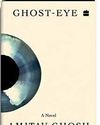Stop Losing Your Stuff
Reader's Digest India
|March 2023
Can't find your keys-again? Cognitive experts help you stop searching (and stressing)

SASHA BRADFORD doesn't have time to lose things. She's a working mom with lots of hobbies, and when she misplaces her keys or leaves her purse at a restaurant, she becomes frustrated and irritable.
"It impacts me greatly," says Bradford, 35, a Washington, DC-based federal contracting officer. Bradford has attention-deficit/hyperactivity disorder (ADHD), which, she says, makes her "prone to put things places and not remember where I put them."
Her angst is probably familiar to anyone whose phone is MIA a dozen times a day, or who can't find the TV remote until 10 minutes after a favourite show has begun. Such lapses might be accompanied by a nagging fear: Is something wrong with me?
Probably not, experts agree. "It's a common occurrence and certainly annoying," says Daniel Schacter, a professor of psychology and director of the Schacter Memory Lab at Harvard University. "Most of the time, losing things results from absentmindedness. That's a breakdown at the interface of attention and memory, where we're focussed on something other than the object we're going to lose be it the TV remote or a phone or glasses," he says. "We're thinking about something else, and then we never really encode the information into memory about where we've put the object, because we have other concerns occupying our attention."
That's not necessarily a bad thing, he says; we could be busy pondering something productive, such as a work task or what to make for dinner. Or there could be another innocuous factor at play: "It might be that I mindfully put something down somewhere maybe it's a book I'm reading and I know I won't be able to get back to it for a few days," he says. "And then I can't remember where I put it." This is a perfectly normal example of 'transience, or the decreasing accessibility of memory over time.
Cette histoire est tirée de l'édition March 2023 de Reader's Digest India.
Abonnez-vous à Magzter GOLD pour accéder à des milliers d'histoires premium sélectionnées et à plus de 9 000 magazines et journaux.
Déjà abonné ? Se connecter
PLUS D'HISTOIRES DE Reader's Digest India

Reader's Digest India
Speaking of History by Romila Thapar, Namit Aroram, Penguin Random House, India
Romila Thapar is one of India's most accomplished historians, her work on ancient India being particularly well-received and a part of university curricula around the world.
1 min
December 2025

Reader's Digest India
ME & MY SHELF
Ranjeet Pratap Singh is the co-founder and CEO of Pratilipi, the largest Indian language digital storytelling platform with over 9,50,000 writers in 12 languages and over 30 million monthly readers. Singh was part of the Forbes 30 Under 30 list in 2018.
3 mins
December 2025

Reader's Digest India
HUMOUR in UNIFORM
While our frigate was taking on supplies at sea from a British ship, I noticed three of their sailors pointing to our destroyer’s squadron crest, which was proudly mounted on the side of our ship.
1 min
December 2025

Reader's Digest India
Obeshwar by A. Ramachandran, Oil on canvas, 2022 78 x 192 inches
One of independent India’s preeminent artists, A. Ramachandran (born in 1935), passed away last year, following a long and distinguished career.
1 min
December 2025

Reader's Digest India
Memes for Mummyji by Santosh Desai, HarperCollins India
Santosh Desai, one of Indian advertising's leading lights for over two decades, has a well-earned reputation for spotting cultural trends in Indian cities, as evidenced by his previous book Mother Pious Lady.
1 min
December 2025

Reader's Digest India
Ghost-Eye by Amitav Ghosh, HarperCollins India
In Amitav Ghosh's first novel since Gun Island (2019), we meet a young Marwari girl named Varsha Singh living in Calcutta in the 1960s with her strictly vegetarian family.
1 min
December 2025

Reader's Digest India
"Good Songs Stay Written ..."
Rock legend Bruce Springsteen on music as a time machine, responsibility in the family, and the situation in the USA
3 mins
December 2025

Reader's Digest India
WHEN COMPUTERS WERE FEMALE
THE PIONEERS OF PROGRAMMING WERE SIX WOMEN
6 mins
December 2025

Reader's Digest India
I Am My Mother's Older Brother
As the onset of dementia reshapes their world, a daughter becomes her mother's carer and keeper while navigating grief, duty, and unwavering love
7 mins
December 2025

Reader's Digest India
Small Changes Big Results
While motivation gets us started, discipline is what keeps us going.
3 mins
December 2025
Translate
Change font size

